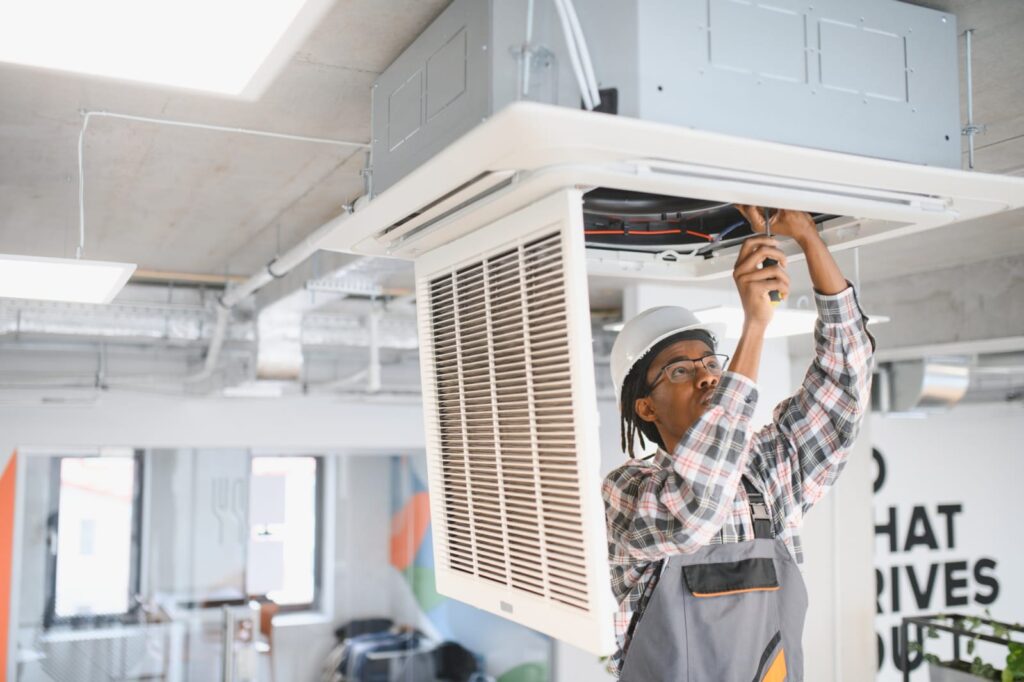
Your HVAC system is the heart of your home’s comfort. But like any major appliance, it doesn’t last forever. While routine maintenance can extend its life, there will eventually come a point when repairs no longer make sense and replacement becomes the smarter, more cost-effective option.
So, how do you know when your HVAC system is on its last legs? In this guide, we’ll explore the top signs that it’s time to consider replacing your old HVAC system before it breaks down at the worst possible time.
1. Your HVAC System Is Over 10–15 Years Old
Most HVAC systems have a lifespan of 10 to 15 years, depending on how well they’ve been maintained. If your system is approaching or exceeding this age range, you’re likely losing efficiency and may be facing more frequent repairs.
Newer models offer better energy efficiency and smart technology integration, which can save you money in the long run. Even if your system still functions, upgrading to a modern unit can provide noticeable improvements in comfort and cost.
2. Frequent and Costly Repairs
Have you found yourself calling the HVAC technician more often lately? If your HVAC system seems to be breaking down every season, that’s a clear indicator that it’s reaching the end of its operational life.
When repair costs start to add up, especially if they total more than 50% of the cost of a new system, it’s usually more economical to invest in a full replacement. Constant repairs not only drain your wallet but also disrupt your comfort.
3. Rising Energy Bills
If your energy bills have steadily increased without a corresponding rise in usage, your old HVAC unit may be to blame. As systems age, they lose efficiency and must work harder to maintain the desired temperature.
Upgrading to a high-efficiency HVAC system with ENERGY STAR® certification can drastically reduce your monthly energy costs and provide a quick return on investment.
4. Uneven Temperatures Throughout Your Home
Do you have rooms that are too hot in the summer or too cold in the winter? Inconsistent temperatures could mean your HVAC system is no longer distributing air properly.
Older units, especially those with outdated ductwork, may struggle to maintain balanced airflow. A modern HVAC system with zone control capabilities can help fix these issues and improve overall comfort.
5. Unusual Noises or Smells
HVAC systems naturally make some noise when running, but loud rattling, banging, grinding, or hissing sounds are cause for concern. These could indicate serious internal problems, such as motor failure or a compromised blower.
Likewise, musty or burning odours coming from your vents may point to mold buildup, burnt wires, or excessive dust, all of which are warning signs that you need a professional inspection and possibly a new system.
6. Humidity Problems and Poor Air Quality
A failing HVAC unit may struggle to regulate humidity, leading to stuffy air in the summer or overly dry conditions in the winter. Excess moisture can promote mold growth, while too little can cause respiratory issues and skin irritation.
New systems are equipped with built-in humidity controls and superior filtration to improve indoor air quality and create a healthier living environment.
7. Outdated Technology
Many older HVAC systems lack programmable thermostats, zoning capabilities, or smart-home integration. If you’re still adjusting the thermostat manually or can’t control your system remotely, you’re missing out on features that improve convenience and energy savings.
Today’s HVAC units are compatible with smart thermostats that learn your habits and adjust temperatures automatically, optimizing both comfort and efficiency.
8. Your System Uses R-22 Freon
If your HVAC unit uses R-22 refrigerant (commonly known as Freon), it’s definitely time to consider a replacement. R-22 has been phased out due to its environmental impact, and it’s now illegal to manufacture or import into the U.S.
As a result, R-22 has become increasingly expensive and difficult to find. If your system develops a refrigerant leak, repair could be cost-prohibitive. Upgrading to a system that uses R-410A or other eco-friendly refrigerants is the safer and more sustainable option.
While replacing your HVAC system might feel like a major expense, it’s an investment that can improve your home’s comfort, reduce your energy bills, and boost your property value. Delaying replacement may cost you more in repairs, inefficiency, and discomfort.
If you’re experiencing any of the signs above, it’s time to talk to a licensed HVAC professional about your options. An expert can assess your current system and recommend a solution tailored to your needs and budget.